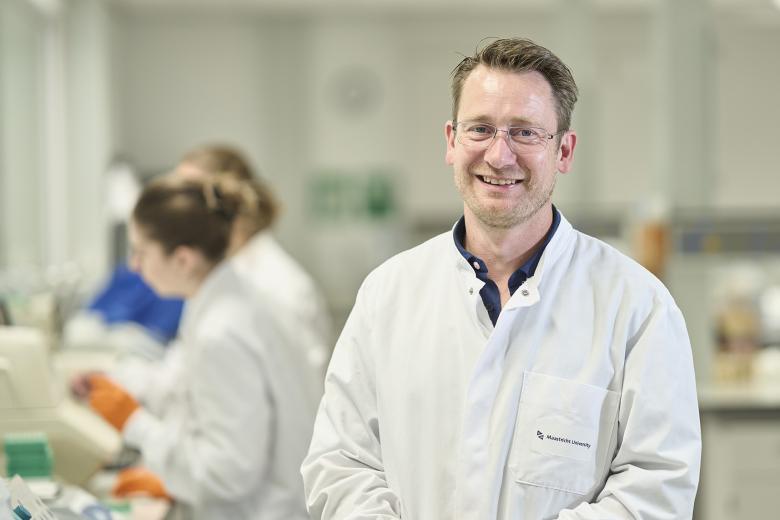Let’s be open and honest, animal testing remains necessary
Thursday 1 July 2021 is Be Open on Animal Research Day, initiated by the European Animal Research Association (EARA). Maastricht University supports this as partner and is #Board with a video and statement. Maastricht University wants to be open about its use of animals in biomedical research. In the coming years we will invest in openness by communicating more via diverse channels and being available for a dialogue, Jos Prickaerts a researcher and Board Member at the Faculty of Health, Medicine and Life Sciences, and Andreas Teubner, Head Central Animal Facility explain why animal testing is necessary.
Jos Prickaerts: “Scientific research is needed for improvements and breakthroughs in medical care. Our doctors and scientists are constantly looking for new and better treatments and medicines for diseases such as cancer, cardiovascular disease and diabetes. To do so, they must continue to increase their knowledge of biological processes in health and disease.
Where possible, alternatives such as cultured cells, organoids, organs on a chip and computer models are used. Our researchers make full use of this and even contribute to the development of alternatives to animal experimentation. Unfortunately, it is not yet possible to fully simulate in an alternative model the complex interplay of biological processes of a living organism. Therefore, animal testing remains necessary for most fields of research.
It will do so till the emerging alternative methods will be so elaborated that they can substitute animal testing. Till we as society can achieve this goal/On the way to that goal, animal testing and alternative techniques have to go in parallel, hand in hand.
Without laboratory animal research, our doctors and researchers can no longer develop new or improved treatments including drugs or vaccines. Without laboratory animals, development in most medical care stops.”
Andreas Teubner: “We expect that animal testing will be necessary in the coming decades to achieve medical breakthroughs. Like other Dutch universities, we work on reducing, refining and replacing animal testing (3R policy). When granting project permits, the Central Animal Experiments Committee (CCD) assesses, among other things, the 3R policy. This policy aims to reduce the use of laboratory animals by 1) replacement by using alternatives where possible, 2) reducing the number of laboratory animals, and 3) refinement, whereby the research is designed in such a way that suffering or discomfort to animals is maximally reduced. Of course, we adhere to the strict rules for animal research in the Netherlands, which are among the strictest in Europe. In any case, this means that we may and will only conduct research with animals if no alternative is available for that research.”
Jos Prickaerts likes to add the benefits for patients where experiments in animals contributed to: “Think of a heart patient who can resume normal life function again and can go to work thanks to a pacemaker that has been developed with the help of dog experiments.
Or a Parkinson's patient with severe tremors who regains a lot of quality of life because his tremors have been stopped by a new treatment method, that has been developed making use of rat experiments.
I was touched by the story of a lung cancer patient who regains perspective thanks to a new treatment, for which the basic understanding has been worked out in genetically modified mouse models.”
Jos Prickaerts concludes: “Maastricht University is open about its use of animals in animal testing. In the coming years we will invest in openness by communicating more via diverse channels and being available for a dialogue to all interested parties. We fully underscore the EARA Transparency Agreement on Animal Research in the Netherlands.”
If you have a question or remark, please contact us: communicatie-fhml@maastrichtuniversity.nl
Also read
-
Science at the frontier of the unknown
How do cancers develop, how do they grow and how does therapy resistance arise? Professor Kasper Rouschop aims to answer these questions.
-
Let it flow: What flowing blood tells us about blood clotting
Amaury Monard uses the Maastricht Flow Chamber to visualise blood clotting to see more precisely where things go wrong in patients.
-
Congratulations: NWO-XS Funding for "Trojan Horses in the Womb"
Theo de Kok, Houman Kahroba and Julian Krauskopf from the department of Translational Genomics have been awarded an NWO-XS grant for their project "Trojan Horses in the Womb: Small Extracellular Vesicles as Carriers of Air Pollution to the Fetal Brain."